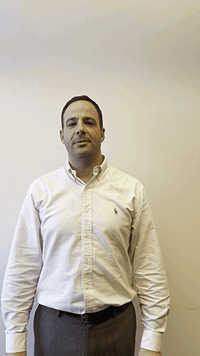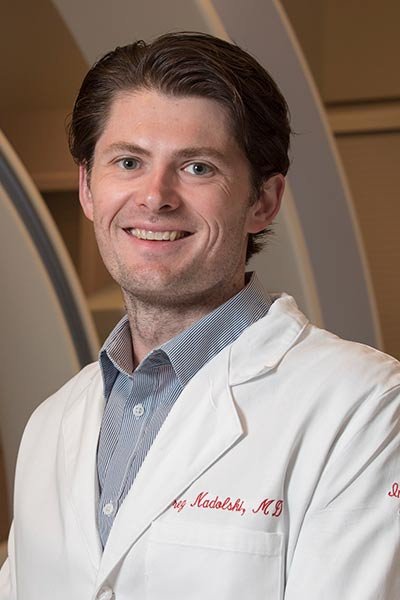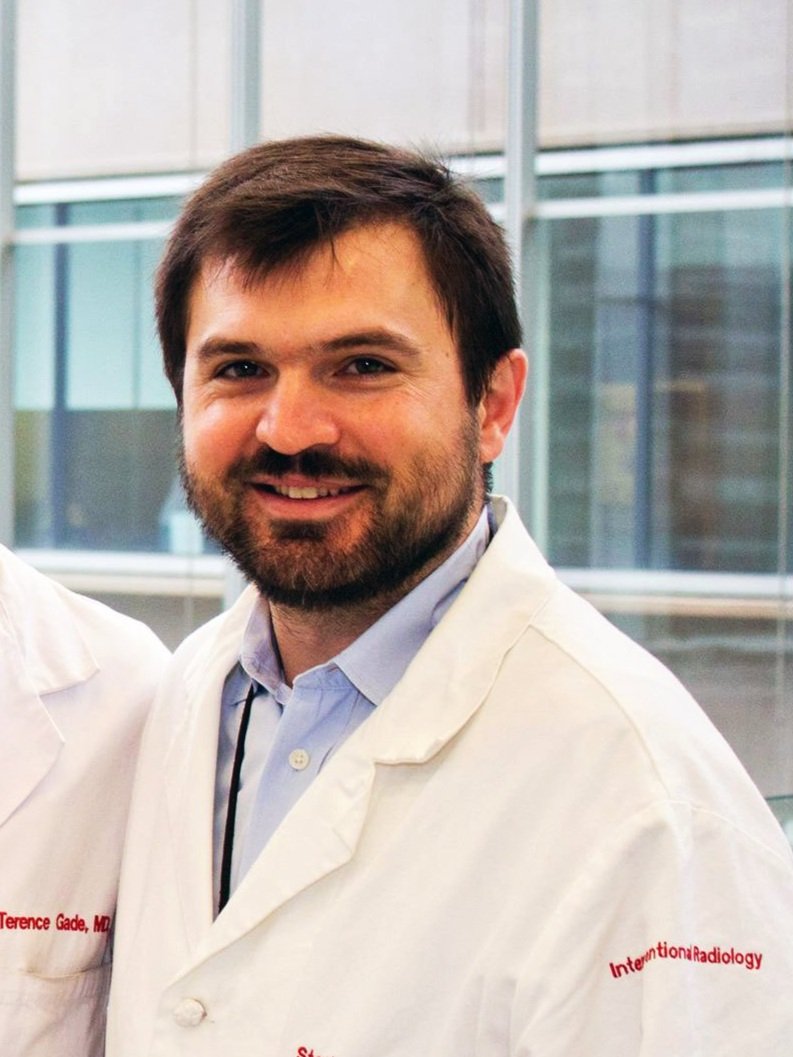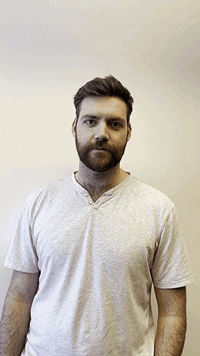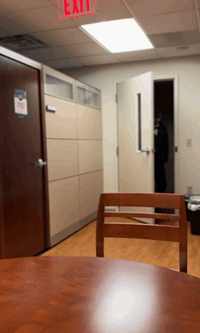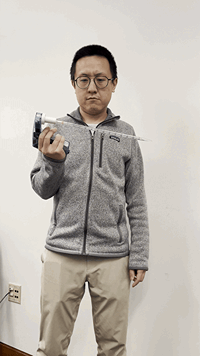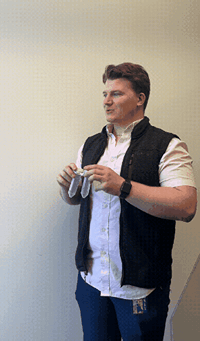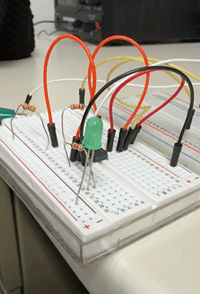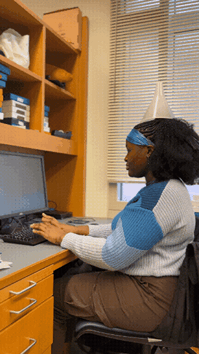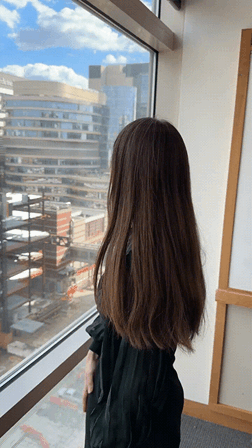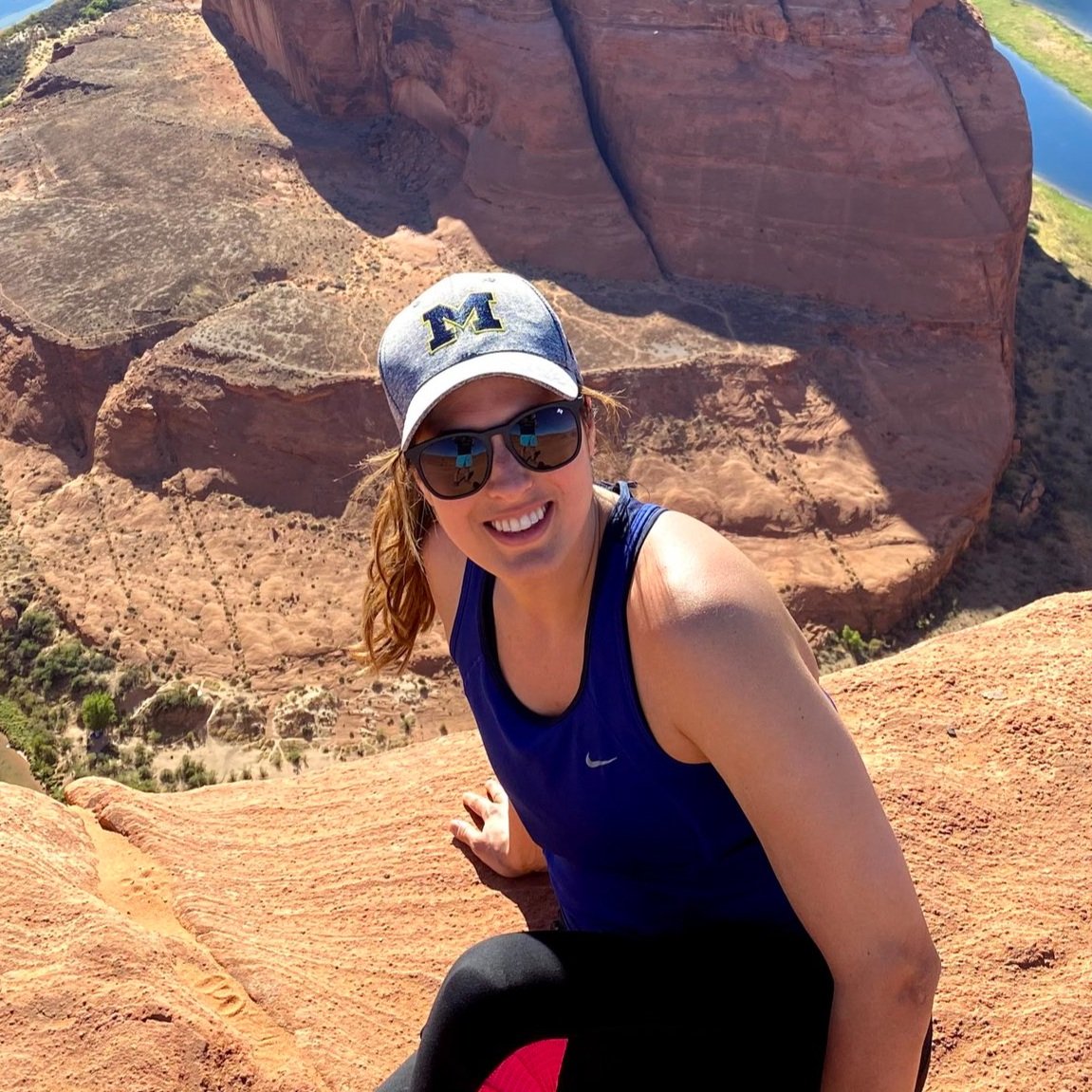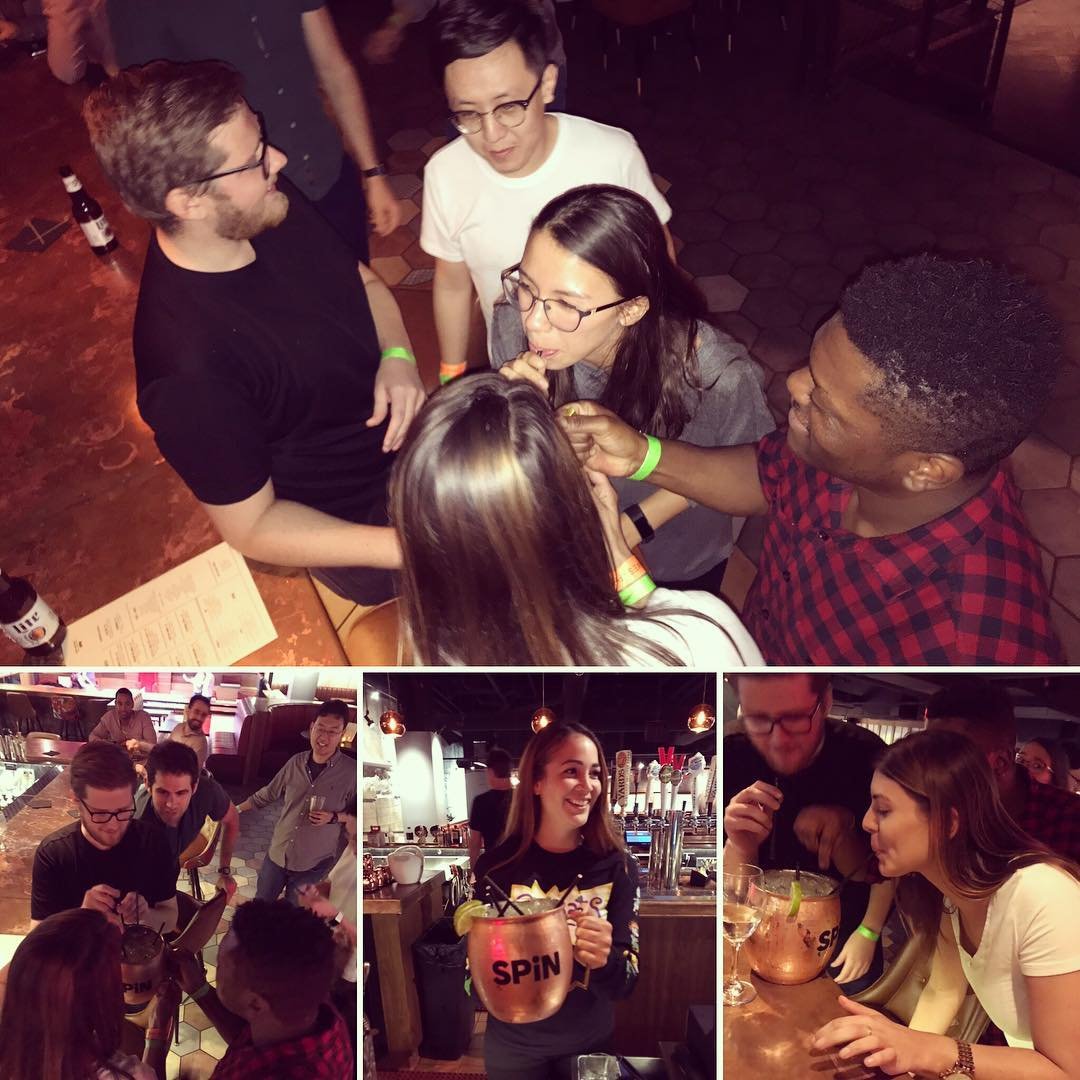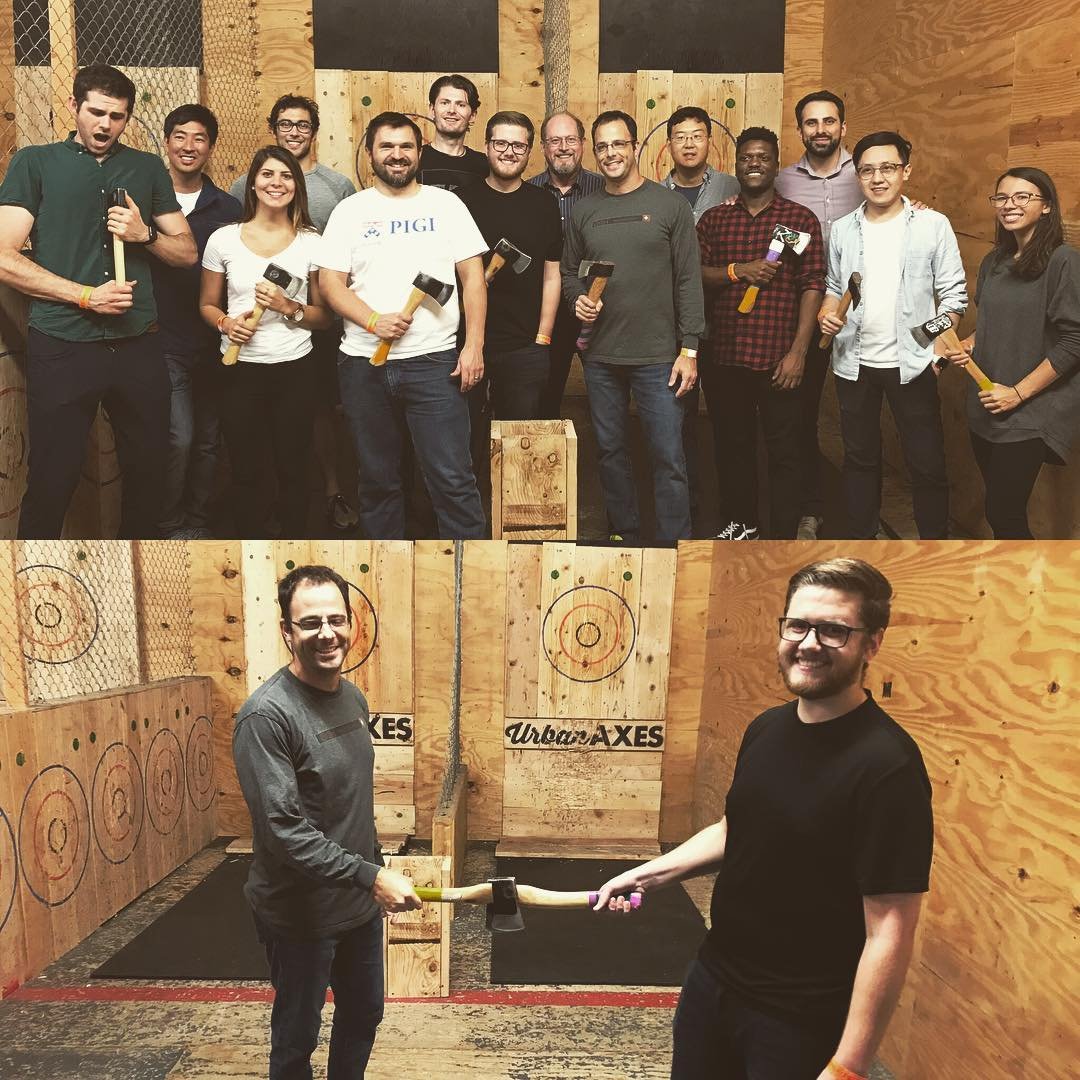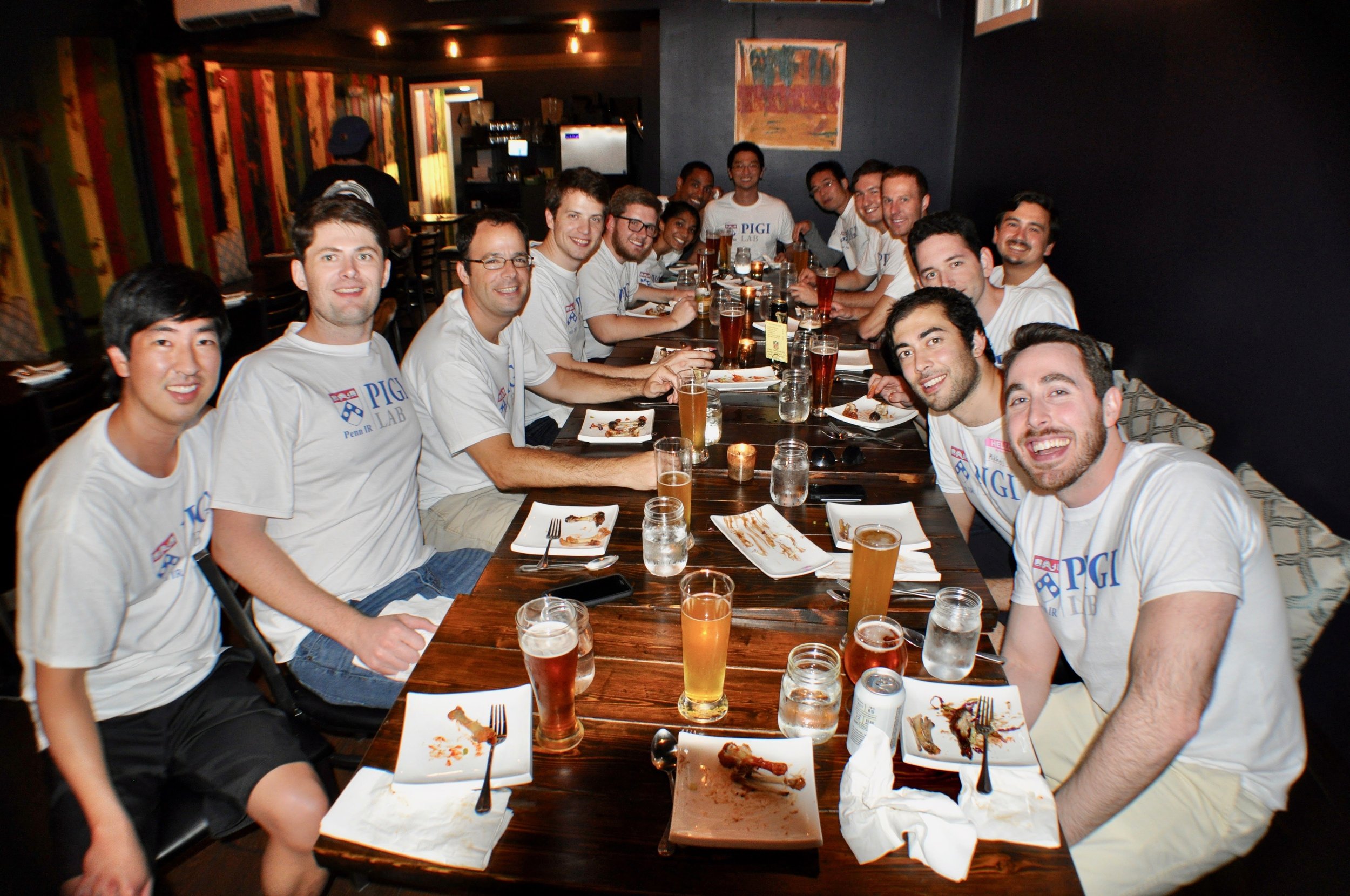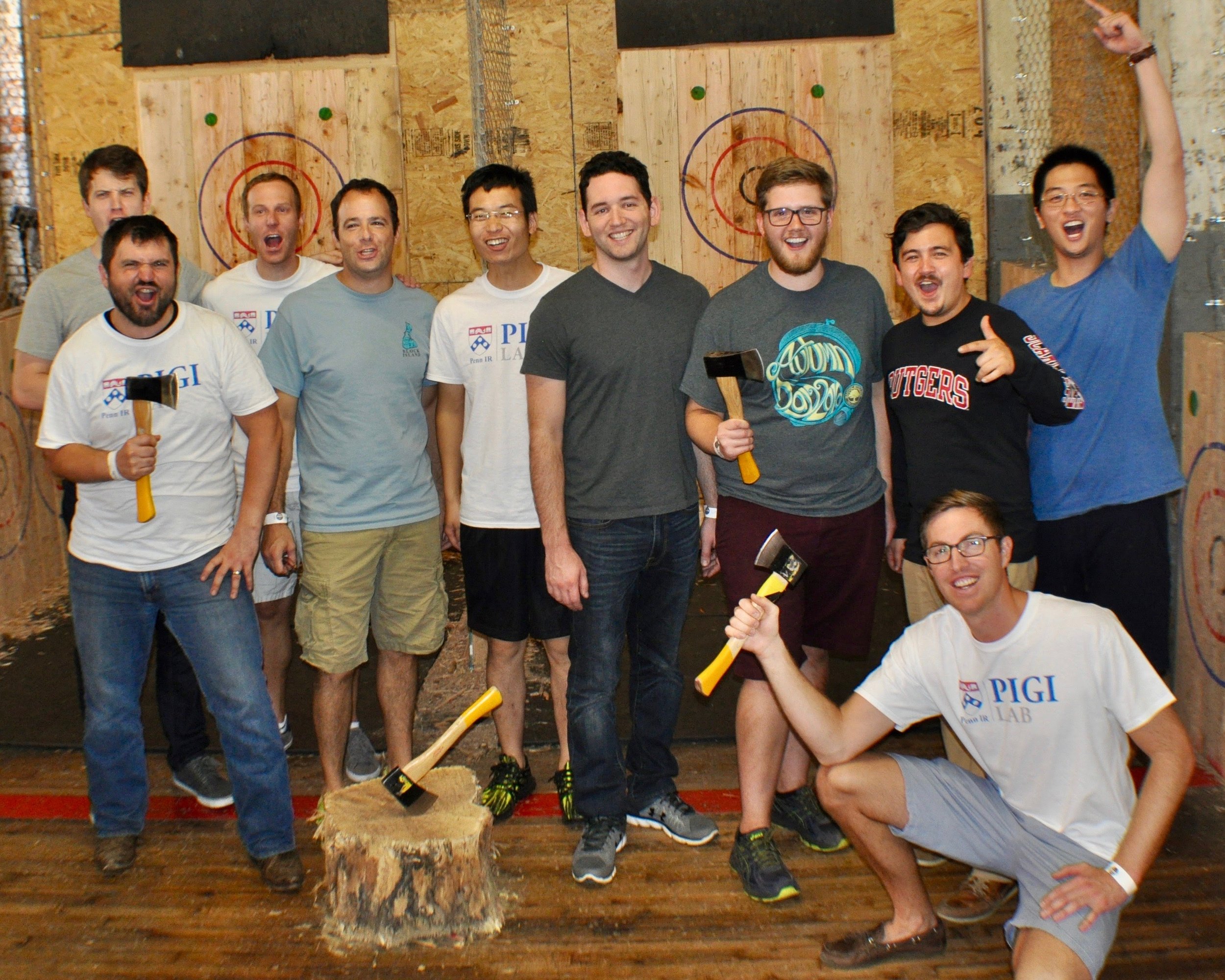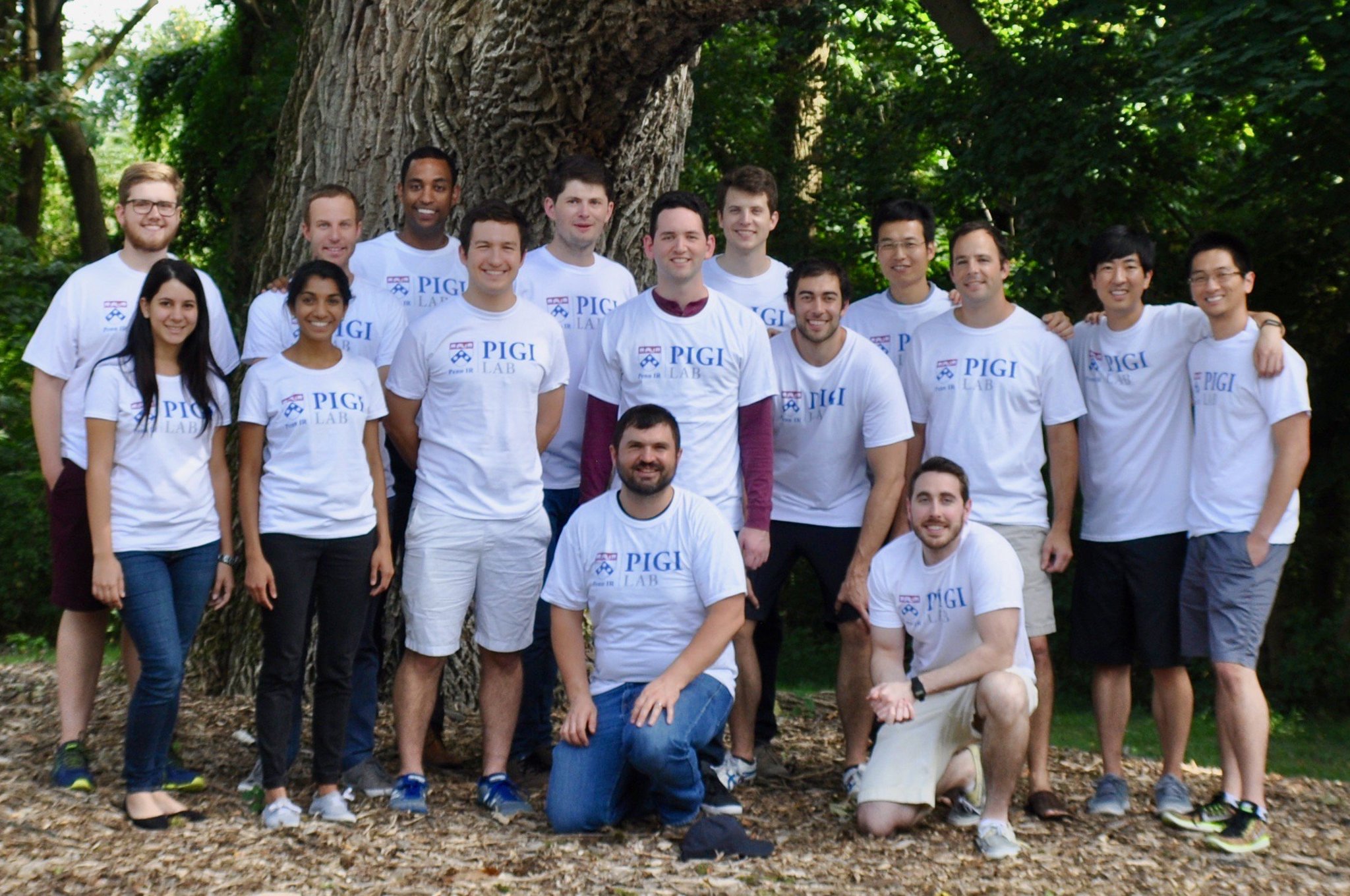Open Positions in the PIGI Lab
Postdoctoral Positions
Interested postdoctoral researchers should contact Terence Gade.
Graduate Positions
Interested graduate students in the Penn Biomedical Graduate Studies Doctoral Programs or the Medical Student Training Program should contact Terence Gade regarding rotation projects.
Undergraduate Students
Penn undergraduate work-study and non work-study opportunities for individuals obtaining a degree in science are provided on the Penn Student Employment website. Interested candidates should send a cover letter and CV to Terence Gade.
Better Know A Lab Member
Assistant Professor of Radiology and Cancer Biology, Perelman School of Medicine at the University of Pennsylvania
Assistant Professor of Radiology, Perelman School of Medicine at the University of Pennsylvania
Assistant Professor of Radiology, Perelman School of Medicine at the University of Pennsylvania
My recent work in the PIGI lab has focused on overcoming difficulties surrounding the generation of patient-derived models of primary liver cancer. This emphasis on improving cancer models stems from my conviction that therapeutic translation in cancer research could be greatly accelerated by increasing the availability of models that represent the diversity and complexity of human disease.
Kelley Weinfurtner is a Transplant Hepatologist and Instructor of Medicine at the University of Pennsylvania. She joined the PIGI lab in 2019 under a T32 training grant as part of her Gastroenterology fellowship. Her research is centered around developing patient-derived models of primary liver cancer for use in translational therapeutics, specifically identifying predictors of response and mechanisms of resistance to immunotherapy in hepatocellular carcinoma.
Dr. Molly Sheehan is biophysicist specializing in protein engineering, purification and characterization who has worked on diverse scientific projects pushing the boundaries of what can be functionally expressed in recombinant systems. She has worked on mitochondrial stress models, blood substitutes, and new probes for tracking cancer therapies amongst other research targets. Molly has expertise in a wide range of analytical techniques, including molecular assays, optical and magnetic resonant techniques. She has pioneered new methods and use cases for spectroscopic imaging and is highly adaptable to learning new technologies. Additionally, Molly has experience improving protein yield and stability across a variety of systems, applying cellular understanding to protein engineering to improve the robustness of recombinant systems.
David Tischfield is an Assistant Professor in the Department of Radiology, Division of Nuclear Medicine Imaging and Therapy, at the University of Pennsylvania. Having completed his MD/PhD, diagnostic radiology residency, and nuclear radiology fellowship at the same institution, David has been a valuable member of the PIGI lab since 2017. His contributions include the development of patient-derived xenograft (PDX) models of hepatocellular carcinoma (HCC), the characterization of the tumor immune microenvironment following locoregional therapy, and the use of metabolic imaging to explore metabolic vulnerabilities in HCC for improved diagnostic imaging paradigms.
Veterinarian in biomedical research. The lab I operate in is interested in developing novel strategies in interventional radiology aimed at improving outcomes in patients with hepatocellular carcinoma.
My experience and skills range from in vitro to in vivo procedures, as well as small animal clinical veterinary medicine and surgery. I'm excited to bring my clinical training and expertise back into a translational research setting. Remember to thank your research animals!
Hailing from NJ, Ali completed a bionengineering degree from Penn before heading down south to complete his MD/PhD at the University of Virginia where he focused on applications for ultrasound drug delivery. He currently heads the PIGI labs initiative to bring augmented reality to interventional radiology (AR4IR).
Alexey joined PIGI in the summer of 2019, during his research gap year while attending medical school in Tel Aviv. His background in Applied Immunology from University of Toronto enabled him to utilize his expertise to analyze hepatocellular carcinoma tumor microenvironment pre and post arterial embolic therapy. Now, as an IR/DR resident, he continues to be passionate about translational basic science.
Shurik is an aspiring actor who just took a very very short detour to get a BS in Physics from the University of Rochester, a 2 year introduction to translational imaging at Massachusetts General Hospital, and is now a graduate student in the PIGI lab (don't worry Hollywood, you'll get him eventually).
I joined the PIGI lab in December 2018. In addition to being the lab manager, I am working with Daniel Ackerman to develop patient-derived models of hepatocellular carcinoma from biopsy samples to allow for functional precision medicine approaches.
After graduating from Swarthmore College and working at Memorial Sloan Kettering Cancer Center, Dan joined the lab in 2022 as a PhD student. He is focused on applying analytical chemistry methods to patient-derived HCC models, and developing robust pharmacokinetics, metabolomics, and mass spectrometry imaging methods is his passion (not graphic design). Outside of lab, Dan loves playing guitar, slow pitch softball, and hanging out with his cat, Mavi.
Originally from Hanoi, Vietnam, Giang completed her BS-MSE in Biomedical Engineering at Johns Hopkins University with a focus on medical imaging and devices. She joined the PIGI Lab in 2024 as an MD-PhD student in Bioengineering. Her research focuses on developing personalized combination cancer treatments and minimally-invasive interventional devices, leveraging cancer metabolism-directed therapy and medical imaging techniques. Outside of school and research, she enjoys traveling, photography, and exploring new cuisines.
I have been working in PIGI Lab since February 2021 as Research Specialist. Before joining PIGI Lab, I have completed my Bachelor and Master of Pharmacy from Bangladesh then I completed MS in Pharmaceutical Science from Rowan University/CMSRU wherein my thesis was in preclinical drug development for treating neuropsychiatric disorder. I do have tremendous interest on drug discovery, more specifically pre-clinical drug discovery for treating cancer. There are chemotherapeutical drugs available and most of those are not capable of targeting only cancer cells. Scientists have been working on developing target based loco- regional therapy to treat specifically target tumor. One of the major ideas of PIGI Lab is to improve and develop new therapeutic methods to treat target tumor by minimally affecting non target cells which enticed me to learn and contribute to this pioneer research. My project in PIGI lab is working on rodent model to treat HCC by minimally invasive loco-regional therapy, known as trans-arterial embolization (TAE) with different particles, nano-particles, hydrogel often with the combination of traditional and novel anti-cancer drug molecules. In this project we regularly use T-2 weighted MRI, sometimes T-1 weighted MRI, ultrasound to stage tumor and image guided technology to precisely embolize the target tumor. We also analyze harvested tissue through IHC and other molecular techniques. Other than my lab- life, I enjoy workout, playing Cricket, and spend time in nature.
Jessica is awesome
Erena completed her bachelor's in Biotechnology in Bangladesh. She is currently pursuing her master’s in biotechnology at UPenn and has been a part of PIGI lab since January 2023. She is working with David Tischfield on his project, where she is investigating the role of leucine metabolism in cancer development and characterizing the tumor immune microenvironment in humanized PDX models of HCC. Her research interests are in cellular immunotherapy, particularly in CART cell therapy. Outside of academic life, Erena likes hiking, exploring new places, and going on adventures. Traveling the world one day is on her bucket list.
Jelsia Cottone is a graduate of Saint Joseph's University (Formally University of the Sciences). She graduated with a Bachelor of Science in Biomedical Sciences with a Certificate of Proficiency for Spanish for Healthcare Professionals. Her research is centered around biopsy clinical trials for liver cancer patients. Throughout her academic career, she has cultivated an interest in translating innovative technologies into practical solution for clinical care, which led her to pursue research in the emerging field of image-guided interventions. Her passion for improving healthcare outcomes is reflected in her work in the PIGI Lab, where she helps manage patient recruitment, data collection, and regulatory compliance for various clinical studies. When she is not committed to bridging the gap between laboratory discoveries and real-world clinical applications, Jelsia likes to travel, sew her own clothes, and spend time with friends and family.
Jelsia Cottone is a graduate of Saint Joseph's University (Formally University of the Sciences). She graduated with a Bachelor of Science in Biomedical Sciences with a Certificate of Proficiency for Spanish for Healthcare Professionals. Her research is centered around biopsy clinical trials for liver cancer patients. Throughout her academic career, she has cultivated an interest in translating innovative technologies into practical solution for clinical care, which led her to pursue research in the emerging field of image-guided interventions. Her passion for improving healthcare outcomes is reflected in her work in the PIGI Lab, where she helps manage patient recruitment, data collection, and regulatory compliance for various clinical studies. When she is not committed to bridging the gap between laboratory discoveries and real-world clinical applications, Jelsia likes to travel, sew her own clothes, and spend time with friends and family.
Following a surgical internship with UPenn Surgery, Lauren is now completing her IR integrated residency with UPenn IR. Lauren is interested in research focused on liver disease, women’s health, and improving clinical operations in DR and IR care delivery.
I’ve been with Penn radiology since 2006 and started working in research in 2019 as a research coordinator. I now manage about 10 Interventional radiology studies.
Dr. Itkin is a Professor of Radiology and Pediatrics at the University of Pennsylvania where he is the director of the Center for Lymphatic Imaging and Interventions. Dr. Itkin is nationally and internationally recognized for his clinical and research expertise in an interventional treatment of the lymphatic disorders.
Professor of Radiology and Director of Interventional Oncology at the University of Pennsylvania Abramson Cancer Center and Director of Clinical Research in the Division of Interventional Radiology. His major clinical and research focus for the past 30 years has been image-guided cancer therapy (interventional oncology), with a specific focus on embolotherapy and ablative therapy of solid tumors in the liver and kidney.

